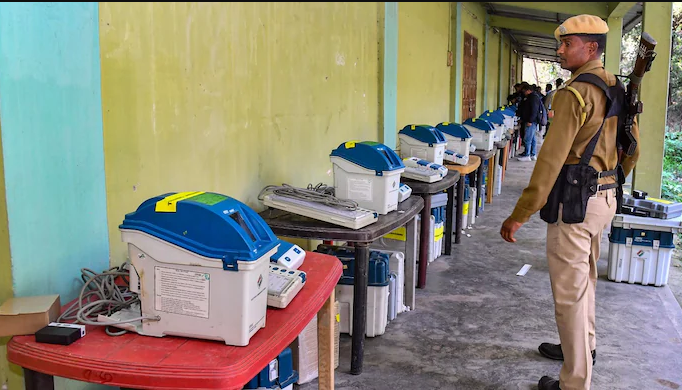In a recent development in the ongoing VVPAT case, the Supreme Court has deferred to the Election Commission’s assurances, emphasizing that it does not wield control over the electoral process. This announcement came during a hearing on petitions advocating for comprehensive verification of votes cast via Electronic Voting Machines (EVMs) equipped with Voter Verifiable Paper Audit Trail (VVPAT).
A two-judge bench of the Supreme Court, comprising Justices Sanjiv Khanna and Dipankar Datta, sought elucidation from the Election Commission of India on five specific queries pertaining to the functionality of EVMs. The court instructed an official from the poll body to provide responses by 2 pm on the same day.
“We cannot control the elections, we cannot control the functioning of another constitutional authority,” remarked the court, highlighting its limited purview in electoral matters. “The ECI has cleared doubts. We cannot change your thought process. We cannot issue a mandamus on the basis of suspicion.”
During the hearing, Justice Khanna elucidated the court’s rationale, stating, “We don’t want to be factually wrong but doubly sure of our findings and hence we thought of seeking clarification.”
Responding to a lawyer representing one of the petitioners, Justice Khanna stressed the non-disclosure of the EVMs’ source code, cautioning against potential misuse if revealed.
The queries raised by the court included the location of the microcontroller within the EVM system, the programmability of the microcontroller, the number of Symbol Loading Units, the duration of data storage, and the handling of Control Units and VVPATs.
In the midst of the proceedings, the bench summoned the concerned Election Commission official to address the queries directly.
Presently, VVPAT verification is conducted on five randomly selected EVMs in each Assembly segment of a parliamentary constituency. However, earlier this month, the Supreme Court issued a notice to the ECI in response to a petition advocating for the counting of all VVPAT paper slips, challenging the current sequential verification process.
The Election Commission has consistently defended the integrity of EVMs, asserting that tampering is not feasible. Moreover, it underscored the meticulous preparations undertaken for elections over the past three years, including mock drills and candidate involvement in machine selection.
The Supreme Court’s deference to the Election Commission’s clarifications underscores the judiciary’s reliance on the expertise and assurances of electoral authorities in contentious matters such as VVPAT verification.

